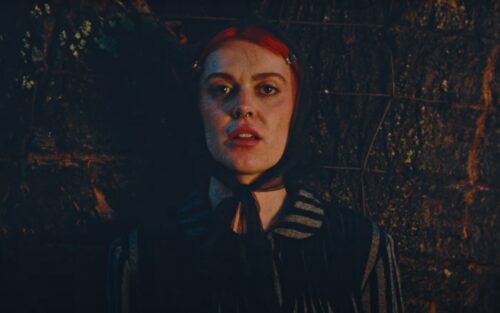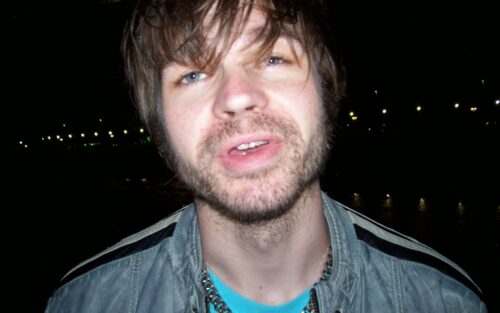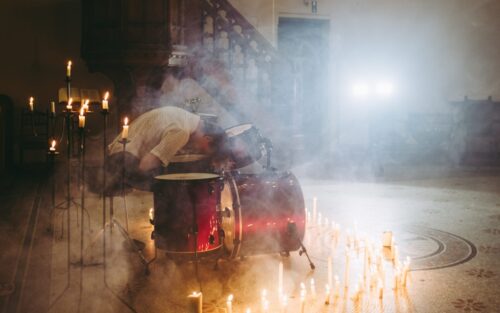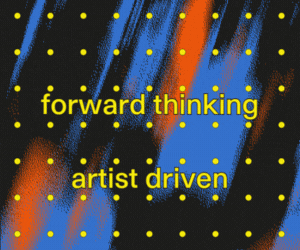Maria-Therese Rises with Monarch
The Toronto soul singer is using butterfly imagery to depict some of her latest personal evolutions.
By Ben Boddez
- Published on
“I would gift it to the couples getting married and then they would do their first dance to it. I think it just made me feel so in awe of love, and I just wanted to feel that and be a part of it,” she says. “And I’m sure they weren’t expecting them to be – not to toot my own horn – but great!”
Maria-Therese’s early experience with distilling big emotions into something catchy and soulful, yet equally therapeutic and cathartic, continued as she grew up and got even more into music. Opening up in her previous work about a wide range of personal topics, her latest set of tracks, Monarch, finds her using a backdrop of neo-soul, jazz fusion and alt-R&B sounds to pick up the pieces after a breakup – and put them back together in a new and exciting way.

Valuing sonic versatility in her work, Maria-Therese is also proud to be from a city that represents the spirit of musical diversity so well. On a typical day in the city, you can find her journaling by the lake or hanging out at Kensington Market, “sitting there with a book, hydrating myself, having some fruit, and having a really chill day.” But despite being discovered at a local Starbucks, you won’t find her going back to the location where it all began.
“I was 15 or 16, working full-time at Starbucks in Brampton. And on my breaks, because I’d have these long shifts, I would take my guitar out and I would sing on my break. The regulars would get to know me and they were super supportive. [Producer] Sydney Johnson, who developed me, was a customer at the time. He just came up to me and was like, ‘Hey, I have a studio. Would you want to come to it? You have a really good voice.’”
Still working with Johnson today – alongside Eli Brown, who has production credits on albums from Drake, PARTYNEXTDOOR and Jessie Reyez, to name a few – the trio came together for six tracks of Maria-Therese shedding the bad vibes of her past and welcoming in a new version of herself. The title Monarch wasn’t only chosen to nod to Maria-Therese’s evolution, parallelling the butterfly’s metamorphosis – it also has a deeper connection to her spiritual side.
“I was researching the monarch butterfly, and it was saying that it goes through many forms of life and death in its migration and I think spiritually the butterfly represents rebirth,” she says. “I’m not so much religious, but I am very spiritual and so I really was drawn to that this idea that you could be reborn again no matter what hardships you’ve been through”


Just as she did when she was much younger, Maria-Therese describes her writing and recording process as therapy, mentioning nights spent crying in the studio while reliving some of the moments she sings about. Still, the EP ends on a hopeful note as she puts the past to rest and moves forward. As for the aspects that Maria-Therese is leaving behind in her previous form as she spreads her wings, it’s what she calls “the fear mentality” and “the black-and-white thinking”
“A lot of that just held me in one space for far too long,” she says. “And so this project is sort of like ‘Hey, I understand you. I understand where you were at that time, but with love I’m going to let you go. You can rest now.’”
Maria-Therese pinpoints one of the hopeful moments as her favourite lyrical passage on the album. It’s from the track “SSD,” which stands for “Signed, Sealed, Delivered.” It’s a mantra that she follows up in the song with a confident “I got mine.” It’s no surprise that Maria-Therese showed up to the interview while wearing a shirt that read “Keep Doing You.”
“It’s like an affirmation. My partner gave it to me and I was like, let me wear this today. Good energy,” she says. ‘SSD’ is that perfect middle track, where it sits [on the EP], because it’s sort of like that first time you go back out into the world after you’ve been through something. It’s saying ‘Don’t worry, you can act how you want to act, but I got me and that’s in print. I know it’s hard, but we’re going to keep moving.’”
While there’s a lot of evocative meaning behind the Monarch title, you can’t exactly say the same about its lead single, “Louisiana Crawfish Boil.” This was an intentional choice. Maria-Therese doesn’t have a cultural connection to Louisiana, and the track never mentions the Bayou State – just a general image of a boiling pot, symbolizing her life bubbling over with chaos as she reprimands an ex. She stuck a potentially misleading title on the single because she wanted people to look past the surface to really see and understand her – including those in the industry.
“I think a lot of what I create is so much deeper than the title usually comes across.”

“You always have a lot of people telling you what the right step is, what the right thing to do is, what music to lean into. And for anybody, it can be overwhelming at times. People maybe weren’t hearing me,” she says. “So I was like, ‘Let me let me call it this, and be aloof with it and just see if people actually hear what it is.’ I think a lot of what I create is so much deeper than the title usually comes across. I think that’s just who I am as a person: at first glance, you never really can tell what’s happening beneath the surface.”
Maria-Therese spoke quite a bit about her musical inspirations, but a lot of the lyrical journey she goes through on Monarch was inspired by a different form of media altogether. A huge Studio Ghibli superfan, she names Hayao Miyazaki’s 2004 film Howl’s Moving Castle as her all-time favourite movie. She’s always related to its themes, but they became even more prevalent with recent events in her life.
“The main girl, Sophie, is overlooked. She’s an underdog. Nobody really cares about her or thinks she’s beautiful and she doesn’t have a lot of self-confidence, but towards the end of the film, she’s like, ‘No, I deserve love. I’m going to get my man and I’m going to ignore all the negativity and the things that people kind of just project onto me,’” she says. “I relate to that movie a lot –I have a wooden music box that plays the soundtrack of it, which is super cute.”
If there’s one thing that really sells Maria-Therese’s music, though, it’s her emotive vocals – just check out any of her social media pages for a wealth of outstanding covers. It’s something that she’s most excited to demonstrate when she heads out on the road.
“I pride myself on being a really good performer. I love it. I think that’s where I feel most at home. So, the live shows are going to live up to the records for sure. I think that’s an important thing for me; it has to sound just as good as it does on your Spotify, on your Apple,” she says. “And I’m always working on music, so there are a lot of projects in the works and I think it’s just going to keep on elevating.”
By Stephan Boissonneault
Nate Amos revisits a decade of stray ideas and turns them into his most compelling record yet.
By Khagan Aslanov
Mike Wallace’s electro-punk project premieres the hypnotic, percussion-driven video for "Certain Days."











